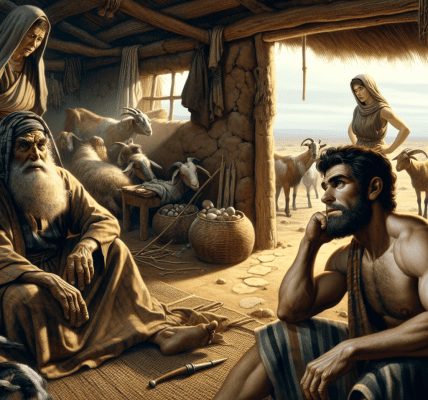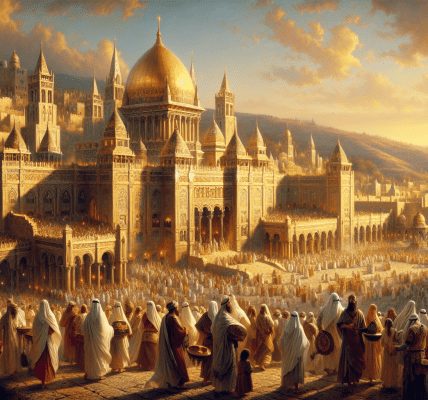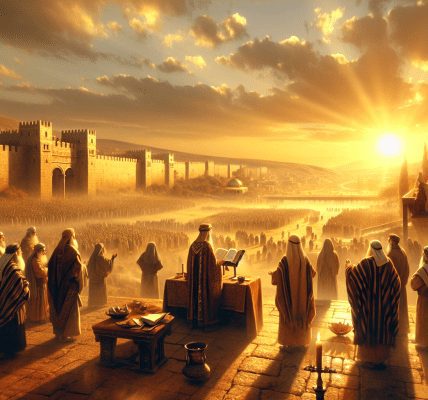**The Wisdom of Eliphaz: A Story of Divine Justice and Hope**
The sun hung low over the land of Uz, casting long shadows across the desolate plains where Job sat among the ashes, his body covered in painful sores, his heart heavy with grief. His three friends—Eliphaz the Temanite, Bildad the Shuhite, and Zophar the Naamathite—had come to comfort him, but their words had turned from sympathy to stern counsel. Now, Eliphaz, the eldest and most revered among them, leaned forward, his voice steady yet firm, as he sought to impart the wisdom of ages past.
“Call now, if there be any who will answer you,” Eliphaz began, his eyes filled with a mixture of compassion and conviction. “Or to which of the holy ones will you turn? Surely, wrath kills the foolish man, and envy slays the simple one.” His words carried the weight of experience, the certainty of a man who had walked long in the ways of wisdom.
He continued, his voice like the whisper of wind through ancient oaks. “I have seen the foolish taking root, but suddenly his dwelling was cursed. His children are far from safety, crushed in the gate without a deliverer.” The image was vivid—a prosperous man, proud and secure, only to have his fortune crumble in an instant, his family left defenseless before the judgments of the Almighty.
Eliphaz raised a hand toward the heavens. “Affliction does not come from the dust, nor does trouble spring from the ground. Yet man is born to trouble, as surely as sparks fly upward.” His words painted a picture of human frailty, of a world where suffering was woven into the very fabric of existence.
Then his tone softened, shifting from warning to exhortation. “But as for me, I would seek God, and to God would I commit my cause.” He spoke of the Almighty’s greatness—how He performed wonders beyond human understanding, how He sent rain upon the earth and lifted up the lowly. “He frustrates the devices of the crafty, so that their hands achieve no success. He catches the wise in their own cunning, and the schemes of the wily are swept away.”
Eliphaz’s eyes gleamed with the certainty of divine justice. “The needy shall not always be forgotten, nor the hope of the afflicted perish forever.” He spoke of God’s mercy, how He rescued the poor from the sword of the oppressor, how He was a refuge for the fatherless and the widow.
Then, with a voice like a father comforting a wayward child, Eliphaz offered Job a promise. “Behold, happy is the man whom God corrects; therefore, do not despise the chastening of the Almighty. For He wounds, but He binds up; He strikes, but His hands heal.”
He painted a future of restoration—six troubles, yes, but seven would not touch Job. “In famine, He will redeem you from death, and in war, from the power of the sword. You shall be hidden from the scourge of the tongue, and shall not fear destruction when it comes.” The words flowed like a river of hope, assuring Job that if he turned to God in repentance, his latter days would be greater than his beginning.
Eliphaz fell silent, his counsel complete. The air was thick with the weight of his wisdom, the unspoken plea for Job to heed his words. Yet Job’s face remained a mask of sorrow, his heart wrestling with the mysteries of suffering and the justice of God.
For in the depths of his pain, Job knew that the ways of the Lord were beyond human understanding. And though the night seemed endless, the dawn of redemption was yet to come.




